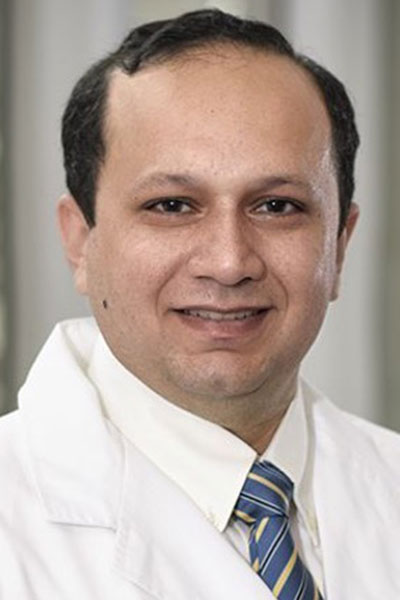The effective management of asthma requires a personalized approach. Between different disease phenotypes, different agents, and different patient factors, no single drug or drug combination can fit all patients. To prevent and reduce asthma morbidity and mortality, clinicians must have an up-to-date understanding of the disease and its interventions.
Asthma 2023: A Multidisciplinary Update, on Tuesday, from 7:15 am to 8:15 am, in Room 320 of the convention center, will gather a panel of experts to address questions that have arisen in the past year.

“How do type 2 and non-type 2 asthma differ from each other in their cytokine profile? What are the current available therapies, and which therapies are being studied for these indications?” said Session Co-Chair, Muhammad Adrish, MD, MBA, FCCP, Associate Professor of Pulmonary, Critical Care, and Sleep Medicine at Baylor College of Medicine. “Since our last meeting in Nashville, new data have emerged on long-term efficacy and safety of biologics, allergen immunotherapies, and potential role of oral eosinophil lowering therapy in the future of asthma.”

De De Gardner, RRT, DrPh, FCCP, Chief Research Officer of the Allergy and Asthma Network, will co-chair the session, which will include a review of the latest data on preventable factors that may lead to asthma morbidity—such as adherence and access to medication, delays in diagnosis and care, and inadequate education on recognizing asthma risk and appropriate actions—as well as the latest evidence on switching biologic therapies in asthma.
“What are the causes of the suboptimal or nonresponse to a biologic therapy? How long should one wait before considering a switch? What role does phenotype play in deciding the next biological agent?” Dr. Adrish said. “These are some of the very important questions that we will answer in this session.”
Sandhya Khurana, MD, FCCP, Professor of Pulmonary Diseases and Critical Care at the University of Rochester Medical Center, will discuss the latest evidence in the management of type 2 asthma. Praveen Akuthota, MD, Professor of Clinical Medicine at the University of California, San Diego, will discuss the newest changes to the management of non-type 2 asthma. Dr. Gardner will review the latest findings on obese asthma phenotypes.
“We are hearing more and more about asthma remission in subgroups of patients with asthma,” Dr. Gardner said. “And obesity and asthma may be seen as which came first, the chicken or the egg? Did someone have obesity, and it affected the way they developed asthma? Or were they diagnosed with asthma when they were younger and developed obesity later in life, possibly as a side effect of long-term steroid therapy? There are many opportunities to intervene.”
Anyone who cares for patients with asthma should attend and come prepared for an interactive discussion, Dr. Adrish said. “We are devoting a significant amount of time to questions and answers, which is something you don’t always see in sessions,” he said. “This is your opportunity to ask questions of four of the leading asthma experts in CHEST and get our take on your particular patient situation.”
Join us at CHEST 2025
Save the date for the next Annual Meeting, October 19 to 22, 2025, in Chicago. CHEST 2025 will explore the latest advancements in pulmonary, critical care, and sleep medicine, with a focus on innovation and the future, just as the city itself embodies progress and reinvention.





